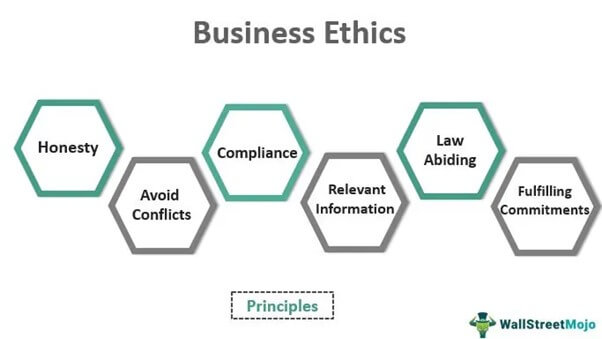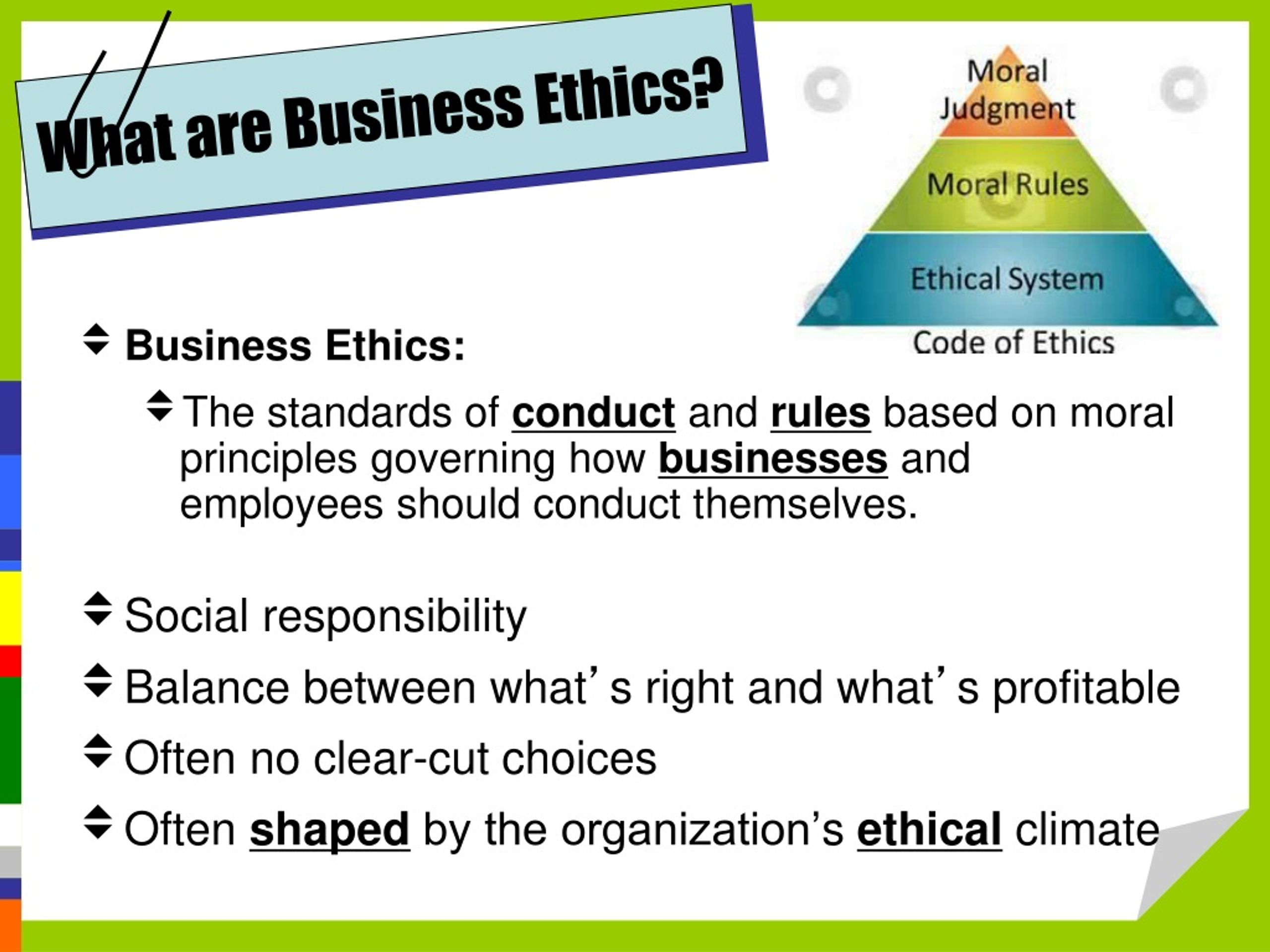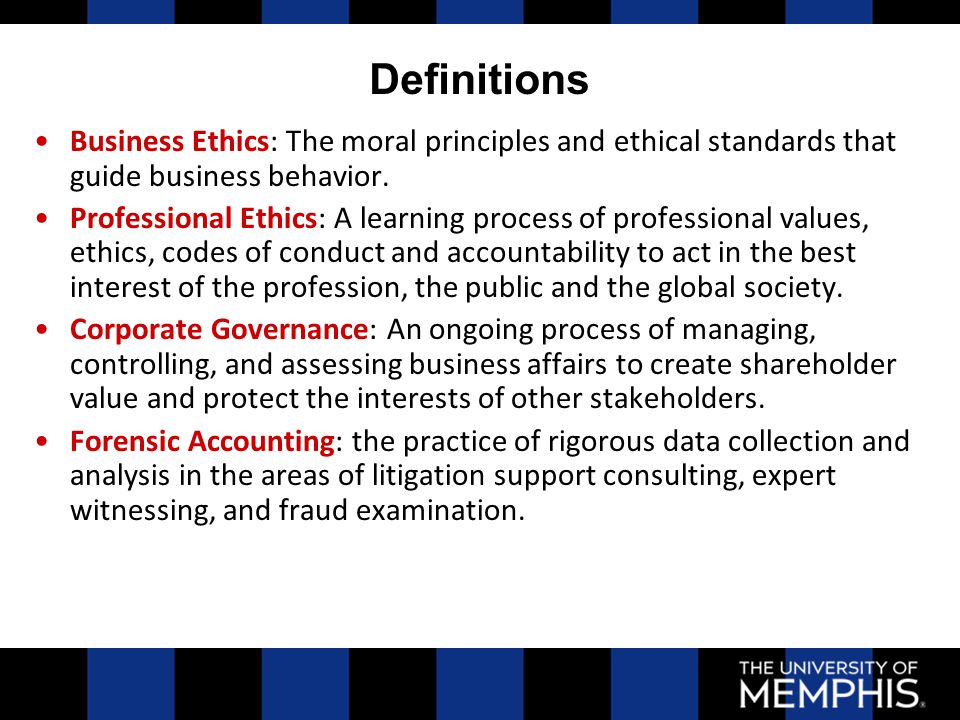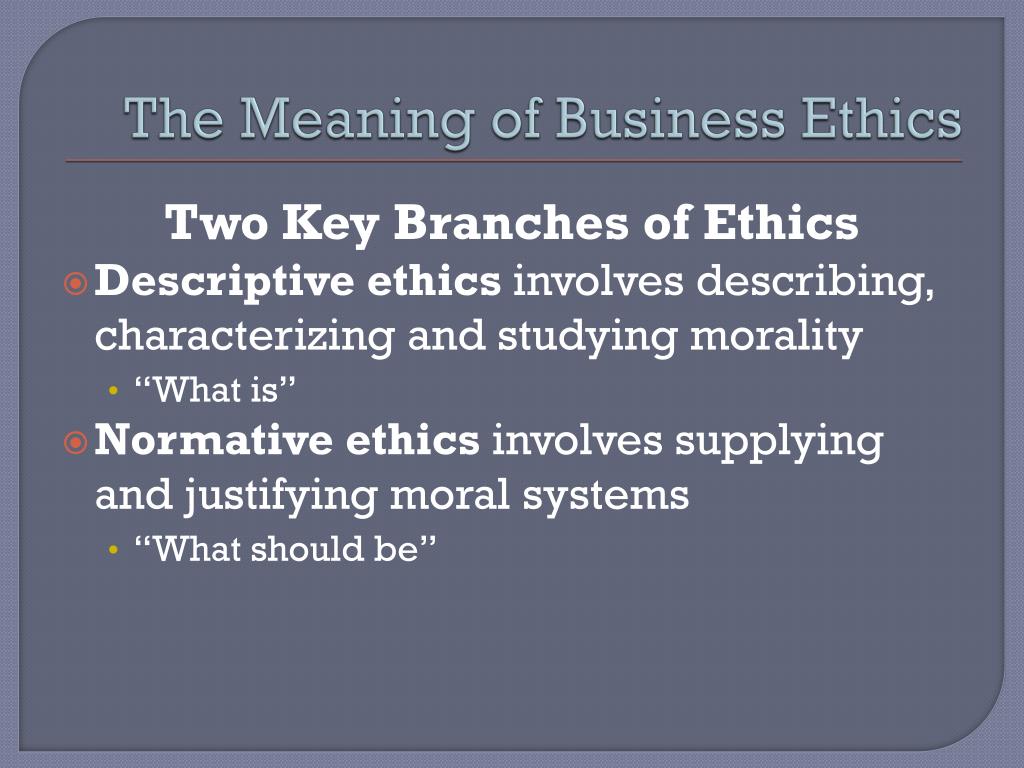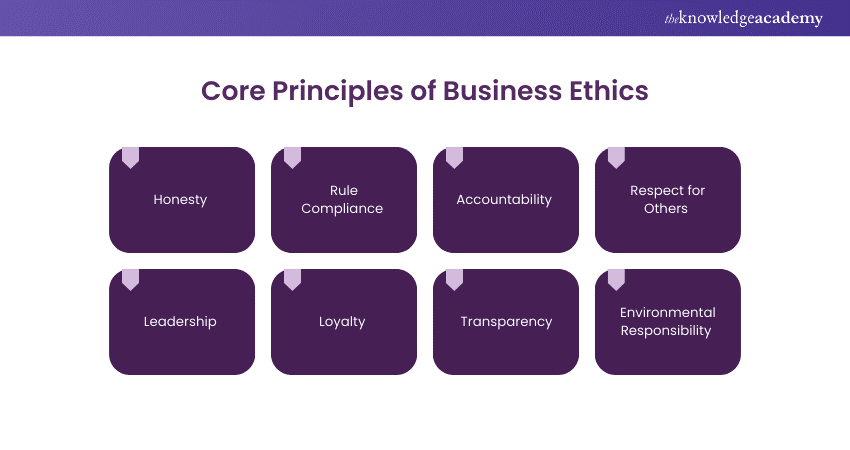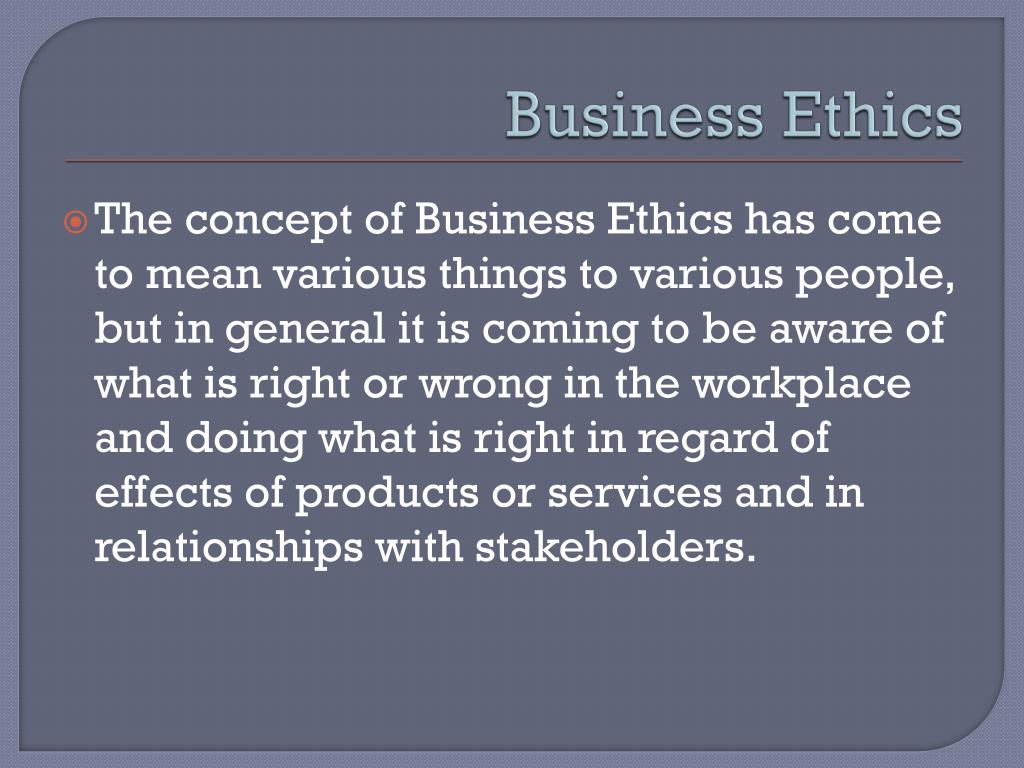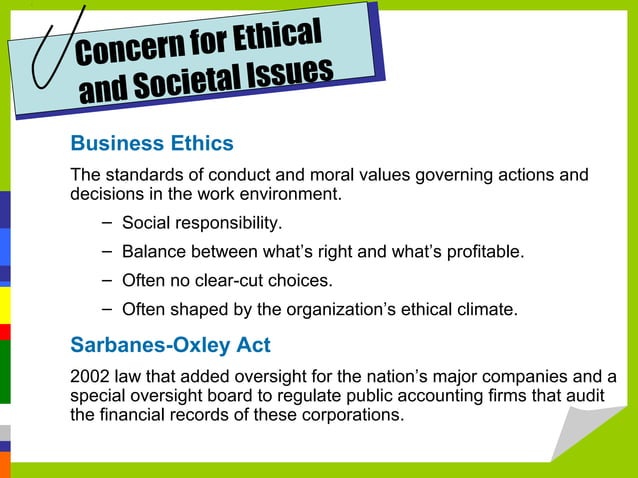Explain The Concept Of Business Ethics
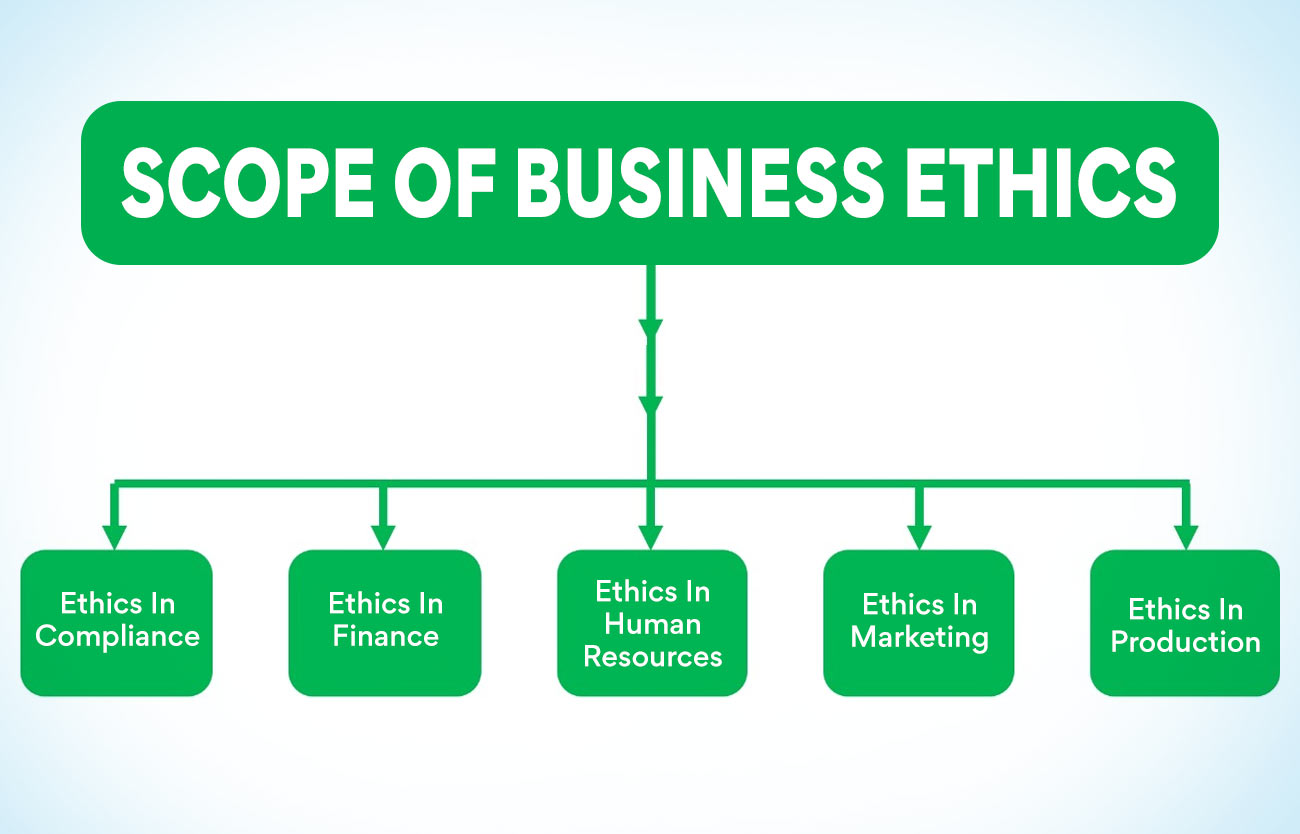
In a world increasingly scrutinized for its corporate conduct, the concept of business ethics has moved from a peripheral concern to a central pillar of organizational strategy. The relentless glare of social media, coupled with heightened consumer awareness, has made ethical lapses incredibly costly. Companies now face not just legal repercussions but also significant damage to their brand reputation and, ultimately, their bottom line.
At its core, business ethics encompasses the moral principles that guide a company's behavior. It goes beyond simply complying with the law and delves into the realm of what is right and wrong, fair and unfair, in the context of commercial activities. Business ethics informs a company's relationships with its stakeholders, including employees, customers, suppliers, and the broader community.
Defining Business Ethics: The Nut Graf
Business ethics refers to the application of moral principles and values to business activities and decisions. This involves adhering to a code of conduct that promotes honesty, integrity, fairness, and responsibility in all aspects of operations. Its about making decisions that are not only profitable but also ethically sound, considering the impact on all stakeholders involved.
This extends beyond legal compliance, focusing on morally right actions even when not legally mandated. Leading organizations are realizing that strong ethical foundations are essential for long-term success and sustainability.
Core Principles of Business Ethics
Integrity and Honesty
Integrity is the cornerstone of any ethical business. It means being truthful and transparent in all communications and interactions, both internally and externally. Companies with integrity avoid deceptive practices, maintain accurate records, and honor their commitments.
Dishonesty can quickly erode trust and damage a company's reputation. The costs of regaining that trust can be enormous, according to studies by the Ethics & Compliance Initiative (ECI).
Fairness and Equity
Fairness involves treating all stakeholders equitably, regardless of their position or influence. This includes providing equal opportunities to employees, offering fair prices to customers, and dealing honestly with suppliers. A fair business environment fosters trust and collaboration.
Unfair practices, such as discrimination or price gouging, can lead to legal challenges and reputational damage. Transparency and consistent application of policies are critical for maintaining fairness.
Responsibility and Accountability
Ethical businesses take responsibility for their actions and are accountable for their consequences. This includes acknowledging mistakes, taking corrective action, and implementing preventative measures. Accountability extends to all levels of the organization, from top management to frontline employees.
Companies are increasingly being held accountable for their social and environmental impact. This has led to a greater emphasis on corporate social responsibility (CSR) initiatives, as reported by Forbes.
Respect for Stakeholders
Respect for stakeholders involves valuing the rights and interests of all individuals and groups affected by a company's operations. This includes employees, customers, suppliers, investors, and the broader community. Ethical businesses consider the impact of their decisions on all stakeholders and strive to create mutual benefit.
Ignoring stakeholder concerns can lead to conflict, boycotts, and reputational damage. Engaging with stakeholders and actively listening to their feedback is essential for building trust and maintaining positive relationships.
Challenges and Criticisms
Despite its importance, implementing business ethics can be challenging. Companies may face conflicting interests, ethical dilemmas, and pressures to prioritize profits over ethical considerations. Some critics argue that business ethics is simply a marketing ploy or a way to avoid regulation.
Others suggest that ethical standards are subjective and vary across cultures. However, a growing consensus supports the idea of universal ethical principles, such as honesty, fairness, and respect for human rights.
Navigating these challenges requires strong leadership, a clear code of ethics, and a culture of ethical decision-making. Training programs and ethics hotlines can also help employees identify and address ethical concerns.
The Future of Business Ethics
Business ethics is likely to become even more critical in the future. As technology advances and global challenges intensify, companies will face increasingly complex ethical dilemmas. Consumers and investors are demanding greater transparency and accountability from businesses.
The rise of ESG (Environmental, Social, and Governance) investing reflects this growing trend. Companies that prioritize ethical practices are more likely to attract investors, retain employees, and build long-term sustainability.
Ultimately, business ethics is not just about avoiding legal trouble or improving public relations. It is about creating a more just and sustainable world. By embracing ethical principles, companies can contribute to the well-being of society and ensure their own long-term success.




